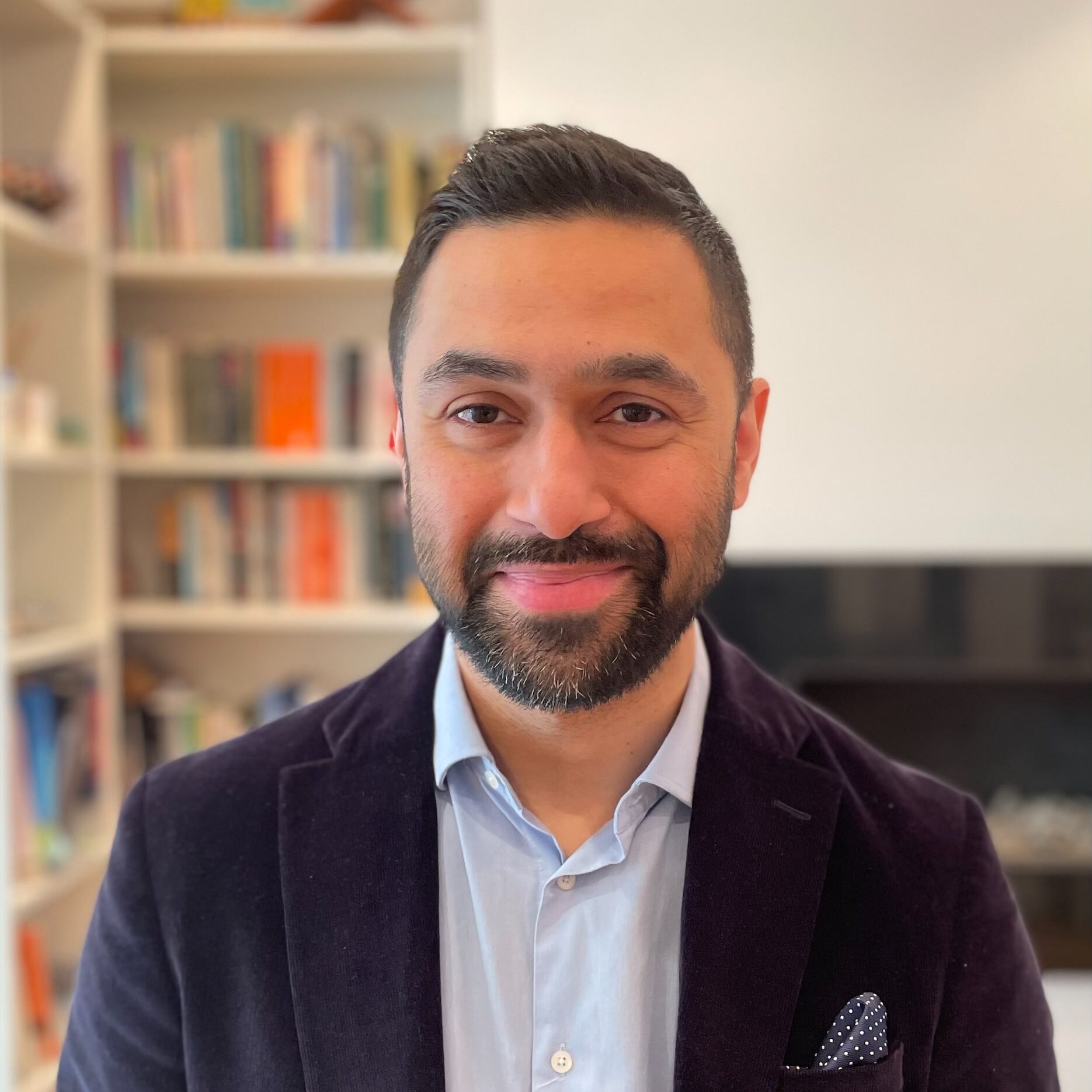UK Trustee network: An interview with Mustafa Faruqi, Muslim Aid
As part of our interview series for our Trustee Network, Frazer Jones Director Fay Phillips-Jones recently spoke to Mustafa Faruqi, Head of Reward and Workplace Relations at Tesco, about being a Trustee for Muslim Aid.

What is your background and how did it lead you to wanting to become a Trustee?
I grew up in a council estate in Hackney, one of the most deprived parts of the UK at the time. I was fortunate enough to benefit from a free university education after getting some decent A-levels which transformed my life chances and led to a successful career in HR.
I was always conscious that things could have turned out very differently for me and so I wanted to do something to give back to others who were less fortunate than I was but in a way that utilised the skills and experiences that I’d learned.
I happened to see an advert in a newspaper for a charity which I’d heard about called Muslim Aid that was looking for a trustee with HR skills and I thought ‘that’s perfect’ and so I applied, was interviewed and appointed in 2019. A few years later when the Chair of the board retired, the rest of the board unanimously nominated me to become the new Chair which I was honoured to accept.
What have you personally gained from being a Trustee at Muslim Aid?
It’s hugely rewarding to know that the work you’re doing can literally mean the difference between life and death for those struck by a natural disaster or benefitting from lifesaving medical treatment. It really puts in perspective some of the less meaningful things that we sometimes spend our time on both at work and at home.
It’s also given me some unique opportunities to meet politicians, ambassadors, sportsmen and even the King and Queen at Buckingham Palace!
What challenges have you faced in the role so far?
When I first joined the organisation in 2019, we had a number of compliance challenges including an ongoing regulatory action plan from the Charity Commission. This was compounded by Covid-19 which meant that our in-person fundraising activity was severely curtailed. We responded by closing several overseas offices to focus only on those core countries where we could have the greatest impact and that had a secure pipeline of institutional or community-based funding.
Sadly, this also meant that our headcount had to be reduced by 50% and most of the leadership team also left as we had to remove all our Director roles. The result however was a much more streamlined and sustainable organisation that was better able to focus on compliance and eventually the commission ended its enquiry after we successfully appealed against further intervention using its internal appeal procedure.
What impact have you had or do you hope to have on the organisation?
The biggest impact I hope to have is on the culture. Excellence is one of our espoused values but the board and I are still trying to instil that value within the organisation. We want the norms and practices of the charity to be excellent by keeping our promises to each other, doing what we say we will do and doing it well. This can be simple things like writing good quality papers and starting meetings on time all the way to winning awards and recognition for our work in the field.
A culture of excellence starts with excellent capability especially at the top. The board of Muslim Aid is unique in the Muslim charity sector in that it’s gender balanced and has a diverse range of professionals such as a lawyer, a banker, a coach, a thinktank CEO, a doctor, a senior formal civil servant and of course myself as an HR professional.
We’re trying to replicate that level of professionalism all the way through the organisation but it’s not always easy in a charity when resources are constrained, and the expectation is that you spend almost all the income you generate on your charitable objectives and minimise overhead costs as much as possible.
What impact has it had in your work, and/or personal life?
I’ve got a very understanding set of leaders at Tesco who enable me to fit a very demanding role alongside my charitable work. Most of the time our charity meetings are in the evenings after 1700 but by keeping multiple email accounts on my devices, I can still respond during the day in a timely way. I’ve also had to make it clear on LinkedIn that I work for both organisations and sometimes when I make comments publicly that I’m making them in my capacity as Chair of Muslim Aid rather than as a senior manager at Tesco.
In terms of personal life, it’s a sacrifice in the sense that I spend less time with the family some evenings but they’re proud and supportive of the work that I do and hopefully I’m setting an example to my children that they should find a way to help others in life rather than just do things for themselves.
What new skills have you gained being a Trustee?
It’s given me skills that I otherwise may not have needed to use as much in my day job such as understanding and signing off financial accounts, liaising with regulators, managing a CEO or convincing high net worth individuals to donate to our cause.
Public speaking is also a skill that doesn’t come naturally to me as an introvert but I’ve tried to live by something I heard in a gym context which is that if you hate a particular exercise, you should do it more often so it doesn’t seem to be as hard anymore and so I’ve taken that approach to giving speeches too.
What advice do you have for others who are thinking of becoming a Trustee?
Find a cause that you believe in and want to do something about and then find an organisation that is doing something about it that you can volunteer to get involved in. It will make you better in your day job if you have one by giving you broader and more unique perspectives and you will find it really rewarding and purposeful.
Get in touch
If you are interested in a Trustee role or are looking to hire a Trustee position, please get in touch with Fay Phillips-Jones to find out more.



